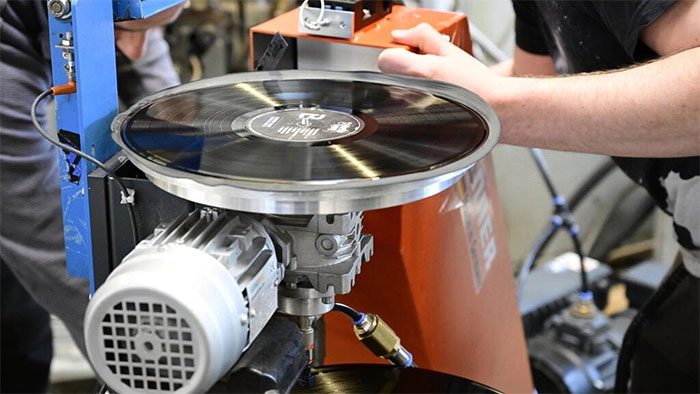The British company Evolution has produced the world’s first vinyl record made from biodegradable plastic, opening up hopes of reducing the demand for Polyvinyl Chloride (PVC).

The British company Evolution has produced the world’s first vinyl record made from biodegradable plastic. (Image: Reuters)
Biodegradable plastic is derived from sugar and starch, rather than oil or gas, and does not produce any toxic waste during the manufacturing process. Evolution’s new biodegradable vinyl has received support from the non-governmental organization Music Declares Emergency (MDE), a climate action group founded by artists and music industry professionals in 2019.
MDE co-founder Lewis Jamieson stated that if Evolution can provide a non-toxic vinyl, it would completely eliminate one of the major pollution factors in the music industry.
Currently, all vinyl records are made from PVC, which Greenpeace rates as the most environmentally damaging type of plastic. The production of PVC releases harmful chlorine-based chemicals that accumulate in water, air, and the food chain. This issue has become more pronounced as vinyl record sales surpassed $1 billion last year in the U.S. alone (the first time since the mid-1980s). Record companies have struggled to secure PVC supplies by partnering with foreign businesses that have poor safety records.
According to Kyle Devine, author of “Decomposed”, which discusses the music industry’s impact on the environment, PVC is a type of plastic that is very difficult to process, recycle, and decompose. He argues that it would be a mistake to consider streaming and digital music as a solution to the industry’s climate impact. According to him, digital data still occupies storage space and consumes energy. The reality is that the scale and popularity of the music industry have severely affected the environment.
Evolution has released its first 20 records made from biodegradable plastic through a lottery event, featuring young artists, including American singer Angel Olsen. Prior to this, testing took nearly five years due to delays related to the COVID-19 pandemic, but Evolution claims they are close to achieving the quality of conventional records. The only downside is the noise produced from the surface when playing the recording. The company expects it will take an additional two weeks to finalize the product.
MDE acknowledges that changing the manufacturing formula for vinyl records will not significantly improve the overall picture of climate change, but such innovations play an important symbolic role.

















































